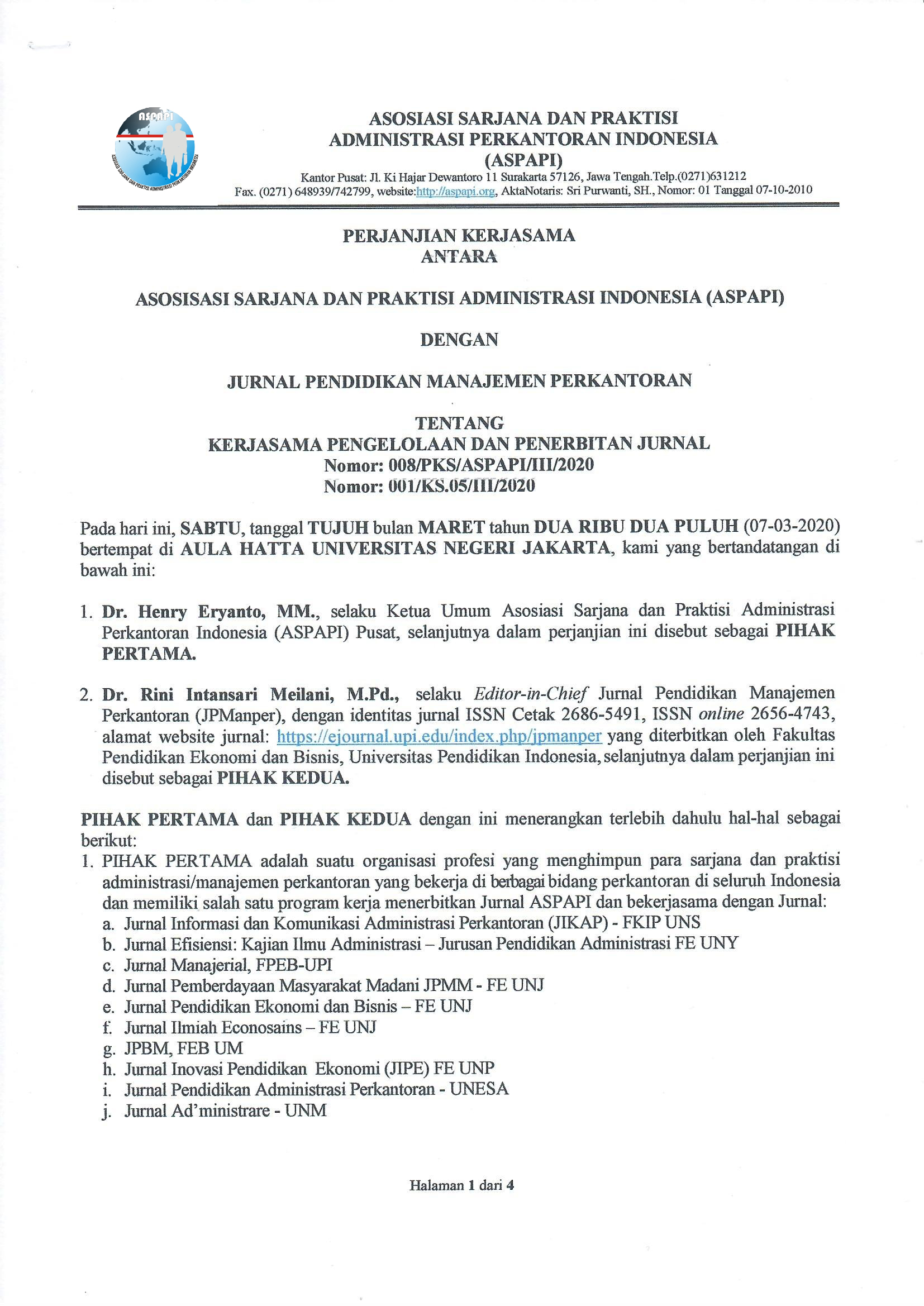DAMPAK PROGRAM PELATIHAN TERHADAP TINGKAT KOMPETENSI TEKNIS PEGAWAI
Abstract
Keunggulan sebuah institusi dalam mencapai setiap target yang telah ditetapkan, dipengaruhi, salah satunya, oleh tingkat kompetesi para pegawainya. Berbasis data penelitian survey yang diperoleh dari 32 orang pegawai pada sebuah institusi pemerintahan, artikel ini membahas hasil penelitian yang ditujukan untuk mengetahui dampak dari program pelatihan terhadap tingkat kompetensi teknis pegawai. Hasil analisa data menunjukan bahwa program pelatihan berpengaruh positif terhadap kompetensi teknis terutama dalam hal kemampuan berpikir, mempengaruhi, mengelola, berprestasi dan bertindak. Untuk mengoptimalkan kompetensi teknis para pegawai, setiap elemen dalam program pelatihan terutama metode pelatihan, harus di rancang agar menarik, inovatif, dan sesuai dengan kebutuhan para pegawai dalam melaksanakan tugas dan fungsinya.
Kata Kunci : program pelatihan, kompetensi teknis
THE IMPACT OF TRAINING PROGRAM ON EMPLOYEES’ COMPETENCY LEVELS
The success of an institution in meeting each of the targets it has set is affected, among others, by the competency level of its employees. Based on data of survey research to 32 employees of a government institution, this article discusses the findings of the research aimed to find about the impact of training program on the technical employees’ competency levels, especially in thinking skills, influencing others, competency levels of employees. The findings show that training program has a positive effect on managing, achieving, and taking action. To optimize the technical competency of employees, each element in the training program, ultimately the method, should be designed attractively and innovatively and in accordance with the needs of the employees in fulfilling their duties and functions.
Keywords: trainingprogram, technical competency
Full Text:
PDFReferences
Armstrong, M. (2009). Armstrong’s handbook of human resource management practice (11 ed.). London: Kogan Page.
Cole, G. A. (2004). Personnel and human resource management. Great Britain: Ashford Press.
Gale, A. (2004). Competencies: organizational and personal. The Wiley Guide to Managing Projects, 1087-1088.
Kurz, R., & Bartram, D. (2002). Competency and individual performance: modelling the world of work. Organisational Effectiveness: The Role of Psychology, 227-55.
Lawson, K. (2002). New Employee Orientation Training. US: Astd press.
McClelland, D. C. (1973). Testing for competence rather than intelligence. American Psychologist, 1-14.
MS., Pallavi P.Kulkarni. (2013, April). A Literature Review On Training &. Journal of Arts, Science & Commerce, IV (2), 136-143.
Rao, N. S. (2013). Essentials of Human Resource management and Industrial Relations; Himalayan Publication House, 3rd Revised & Enlarged Edition. 199-203.
Robotham, D. & Jubb, R. (1996). Competences : Measuring The unmeasurable, Management Development Review, Vol. 9 Iss: 5, pp.25 - 29
S. E. Martynova & O. G. Maslennikova. (2015). The "Service" model of the competences of the municipal employee. Procedia - Social and Behavioral Sciences, 2716-2720.
Ventje, J. K., & Sherly, F. (2014, April). The effect of training and competency on employees’ organizational. Journal of Economics, Business, and Accountancy Ventura, 17, 55 – 68.
Wesselink, R. (2001). Using an instrument to analyse competence-based study programmes: experiences of. Journal of Curriculum, 813-829.
DOI: https://doi.org/10.17509/jpm.v1i1.3347
Refbacks
- There are currently no refbacks.
Copyright (c) 2016 Jurnal Pendidikan Manajemen Perkantoran
Jurnal Pendidikan Manajemen Perkantoran View My Stats



